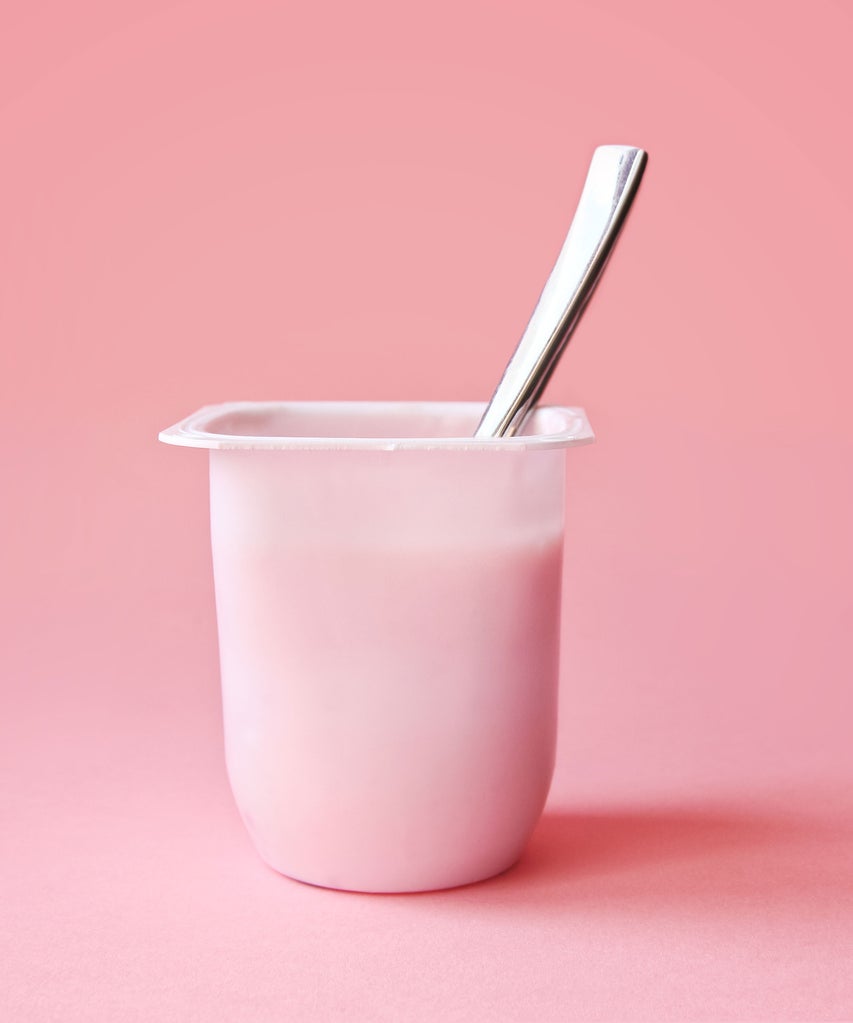Do Probiotics Really Do What Everyone Says They Do?

The first time many of us became aware of probiotics were courtesy of Jamie Lee Curtis's Activia ads. I don't think they even mentioned the word probiotic at first — just the mildly exotic sounding Bifidus regularis.
Now, we're all used to hearing about the good bacteria that live in our guts and elsewhere in and on the body. And we're all used to products and foods touting their probiotic content. There are supplements, sure. But there's also skincare — with probiotics! Cereal — with probiotics! Nutrition bars — with probiotics!
AdvertisementADVERTISEMENT
The bugs are everywhere. But are they really the miracle everyone seems to think?
What are probiotics?
The good microbes that are in the lower intestinal tract help us digest food, fight harmful bacteria, and regulate our immune system, Harvard Health Publishing reports. But an imbalance of these microbes, usually caused by things like stress or antibiotics, can lead to diarrhea and other health problems.
That's where probiotics come in. Taking the supplemental bugs is thought to help restore your gut's balance back to normal, alleviating symptoms.
Different strains of probiotics seem to help maintain digestive health and boost the immune system, among other things. They can be found naturally in fermented foods, like yogurt or sourdough bread, in addition to supplements and fortified foods.
Do probiotics actually work?
First, some caveats. One issue is that products containing the bacteria may not be regulated by the Food and Drug Administration. The agency doesn't oversee probiotics that are sold as supplements. And some things you would think of as a food — a protein bar, say — might actually qualify as a supplement, making it exempt from certain FDA oversight.
What's more, for the most part, “the claims that are made [about probiotic products] are enormously inflated," said Emma Allen-Vercoe, a microbiologist at the University of Guelph in Ontario, in an interview with Scientific American. Even the U.S. Department of Health & Human Services says that "not all foods and dietary supplements labeled as 'probiotics' on the market have proven health benefits."
AdvertisementADVERTISEMENT
"There are more than 500 different species of microorganism which can find their way into your gut," adds Niket Sonpal, MD, an internist and gastroenterologist in New York City. "While research seems promising, especially when it relates to a few of the most helpful types of probiotics, we cannot consider any single probiotic a one-size-fits-all solution."
So... are they useless?
No. Certain strains of probiotics do seem to offer specific benefits. Some types can protect your liver against damage from acetaminophen, for example, according to a study presented at the 2018 Experimental Biology meeting.
There have also been a few promising studies around the effect some strains have on atopic dermatitis, the most common form of eczema, and even high levels of cholesterol.
"Studies show that different types of probiotics help target certain symptoms of IBS," Dr. Sonpal adds. "So while these probiotics may not cure the disease, they can help patients improve their symptoms." He also says that some, like Lactobacillus, have been shown to help alleviate abdominal pain, gut flora imbalances, diarrhea, gas, constipation, and other symptoms.
But taking the bacteria can also cause side effects, including brain fog and severe bloating. "Probiotics should be treated as a drug, not as a food supplement," says Satish S.C. Rao, MD, PhD, one of the authors of the Experimental Biology 2018 study.
AdvertisementADVERTISEMENT
Should I take probiotics?
Maybe, after doing your due diligence and talking to a doctor. From the available studies, it seems pretty clear that the healthy bacteria have some benefits. But even though we've been hearing about them for a decade now, more research is needed to determine exactly what strains to take to benefit health. Stay tuned.
In the meantime, there are strategies you can take that can improve the balance of bacteria (and fungi) that live in your body, like eating naturally probiotic foods. No probiotic-spiked protein bar required.
AdvertisementADVERTISEMENT






